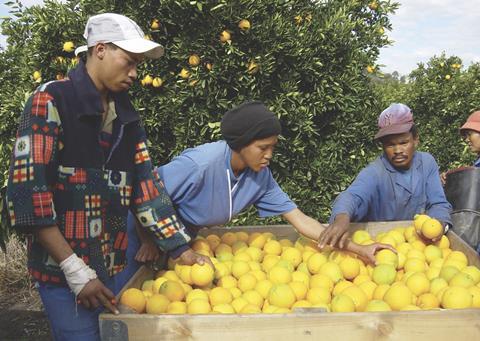Trump tariff interventions brings new focus to resolving dispute with Brussels

There are growing signs that Trump’s crippling new tariff regime could kickstart direct talks between South Africa and Brussels aimed at resolving the trade dispute regarding concerns over Citrus Black Spot and False Codling Moth in shipments of South African citrus to the European Union.
The dispute is presently at the World Trade Organisation (WTO), where at South Africa’s request, two panels were established at a meeting of the Dispute Settlement Body (DSB) to examine what, in South Africa’s view, are unscientific and discriminatory measures placed on citrus imported from South Africa by the European Union (EU).
In discussing South Africa’s reaction to US tariff barriers and its effect on world trade, South Africa’s Minister of Trade, Industry and Competition, Parks Tau, recently lifted the lid on new thinking in Pretoria on how best to resolve the dispute.
“These processes (at the WTO) take a long time and in the present international climate one wonders if it is not better to renew new direct discussions with the EU,” he said.
The EU is one of the marketing regions earmarked for growth by South African fruit exporters. It is the biggest market for South African citrus exports, which includes fruit from the Western and Northern Cape that are not under CBS regulations. Grape producers have also stated their intention to protect their markets in Europe and the UK, which account for nearly 80 per cent of their exports. Closer ties between South Africa and the EU will therefore be a boost for all fresh produce categories.
This is where, in a new spirit of détente, all roads will now probably again lead to Brussels where the whole dispute is likely to drag on for several years. At the same time, South African citrus growers have spent billions of rands every year on measures to mitigate the risk that these two conditions could pose to European producers.
Unconfirmed reports suggest that several countries – including the US, China, India, Russia, Argentina, Uruguay, Zimbabwe and Eswatini – have taken South Africa’s side in the dispute. Now it appears that many nations will be forced to rethink their trade policies due to Trump’s tariffs.



